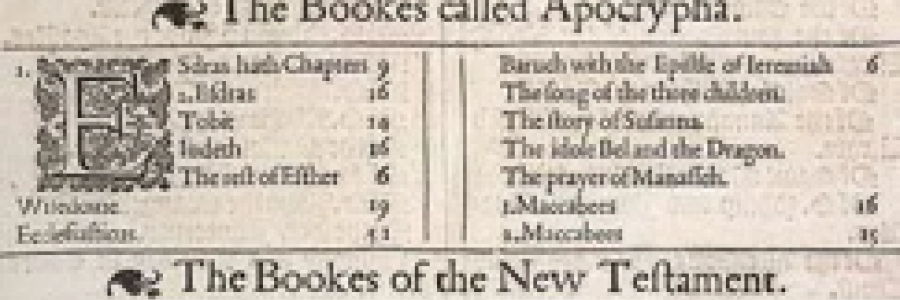Theology Thursday - The Problem of Evil from 2 Esdras
The book of 2 Esdras is usually grouped with the Old Testament Apocrypha, even though that really isn’t accurate. It’s actually a composite book containing three documents. The largest is a Jewish apocalypse from the late first-century (also known as 4 Esdras), likely written just after the destruction of the temple in the aftermath of the Jewish Wars. It’s book-ended by two, shorter Christians works: the first from the second century and the other from the third century.
Discussion
Book -- Counting the Cost: Christian Perspectives on Capitalism
Body
“For some who dislike free market economics, capitalism is responsible for everything that is wrong with the world. For some who prefer a free market, capitalism is the sum of all the world’s goodness.” IFWE
Discussion
Koresh, Bible prophecies and the tragedy of Waco
Body
“The tragedy led to Congressional hearings, creating massive amounts of reference materials — including recordings of Koresh and others. The “Waco” miniseries also drew inspiration from books by David Thibodeau, a Branch Davidian convert who survived, and Gary Noesner, a key FBI negotiator.” Daily Press
Discussion
Essential Elements of Young Earth Creationism and Their Importance to Christian Theology (Part 8)
From DBSJ. Read the series.
Are the Essentials Really Essential?
Up to this point in this essay, I have argued for the importance of each of the nine elements to young earth theology. The collection of these elements and their cohesion together define young earth theology. If any of these are taken away, the view ceases to be a young-earth view.
Discussion
“By Which a Man May Live”: The Meaning of Leviticus 18:5
Leviticus 18:5 stresses the importance of keeping God’s Law during the Mosaic era as the basis for living. Its truths also appear in Ezekiel 20:11, 13, and 21. Paul even alludes to Leviticus 18:5 in Romans 10:5 and Galatians 3:12. The verse reads: “So you shall keep My statutes and My judgments, by which a man may live if he does them; I am the Lord.”
Discussion
Was Simon Magus a Christian?
Discussion
K. Scott Oliphint: God “decides to be something else as well”
Body
Reformed Baptist Academic Press: Another example of a contemporary author who argues for a change in God’s existence due to creation is K. Scott Oliphint. He contends “that God freely determined to take on attributes, characteristics, and properties that he did not have, and would not have, without creation.”



Discussion